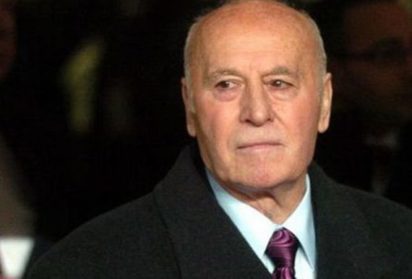
At Mill View, we continually ask residents what they would like to see. We have a fully functioning vintage corner shop, a cinema and a library – all inspired by our residents.Most recently, our residents said they wanted more spaces to spend time with friends and family, so we offered a range of options: a vintage tea shop, a cafe or a 1950s diner. Residents chose a diner, and after 18 months of fundraising, planning and construction, we opened the Pitstop in May – with an Elvis impersonator in attendance. The diner features bright booth tables, an old rotary telephone, jukebox, milkshake machines and a display of period advertisement signs. All these projects provide valuable spaces for our residents to reminisce; they can continue to do the things they used to love, such as watching a film or meeting friends for lunch. These areas also work well for reminiscence therapy, which uses nostalgic surroundings to help stimulate memories and conversations for those living with dementia. The familiarity helps to put residents at ease, so they can focus on talking about happy memories.
Posts published in “Current Event”
Hannah Flamm wrote for the Washington Post (8/10) about antipsychotic use in nursing homes for dementia patients, saying their use “as chemical restraints – for staff convenience or to ‘discipline’ a resident – has a long history in nursing homes,” and that for “more than a decade, the Food and Drug Administration has required manufacturers to place the strongest caution...on the packaging to advise against the medicines’ use in these patients.” These drugs “almost double the risk of death for them and have never been approved as safe or effective for treating symptoms of dementia,” but despite that “warning, nursing homes still often administer antipsychotic drugs in this manner, sometimes without seeking informed consent first,” Flamm said.
The American Psychiatric Association has “conclude[d] that the drugs offer ‘at best small’ potential benefits...while ‘on the whole, there is consistent evidence that antipsychotics are associated with clinically significant adverse effects, including mortality.’”

Ron Saunders who guided Aston Villa to the 1981 English League crown is suffering from dementia and his son believes it is in part down to heading the ball when an uncompromising striker back in the 1950’s and 60’s.
“They have given it one of their dementia names, his brain has gone.
Saunders is just the latest of his generation of footballers to have his dementia linked to heading the old style ball.
Last week another former Portsmouth player wing-half Rod Taylor’s death was diagnosed as a similar form of dementia linked to heading the ball.
Several other high-profile footballers — including a trio of England’s 1966 World Cup winning team in Martin Peters, Nobby Stiles and the late Ray Wilson — have also been diagnosed with dementia.
Law requiring dementia training for healthcare professionals is unprecedented, Alzheimer's Association says. Healthcare professionals who treat adults in Massachusetts will be required to undergo training related to Alzheimer's disease under a new law signed Thursday by Gov.
The Mass Alzheimer's and Dementia Act addresses what the Alzheimer's Association calls “the most under-recognized threat to public health in the 21st century,” costing the country $277 billion annually in Medicare, Medicaid, caregiving and other expenses.
LeadingAge Massachusetts and the Massachusetts Senior Care Association, the state affiliate of the American Health Care Association / National Center for Assisted Living, were two members of a coalition advocating for passage of H. 4116, according to the Alzheimer's Association.
Steve Bullock of Montana, a Democrat, last month wrote an opinion piece in Newsweek in support of the Building Our Largest Dementia (BOLD) Infrastructure for Alzheimer's Act.
“Regardless of socioeconomic standing, geographic location or political beliefs, we should all be concerned about the public health threat posed by Alzheimer's.”
After decades of medical research, why is chemotherapy still a mainstay for cancer patients?
Why do many Alzheimer’s patients still slide inexorably into helplessness?
How did developing a new drug become a multibillion-dollar venture that can take a decade or more?
Regulators, including at the Food and Drug Administration, have shackled every aspect of drug development under the guise of doing no harm.
But how exactly does it “harm” patients facing certain death to provide them with...

The legislation requires physicians, physician assistants, and nurses to undergo training in diagnosis, treatment, and care of patients with Alzheimer’s and other forms of dementia, before they can obtain or renew their licenses. It also requires physicians who have diagnosed Alzheimer’s in a patient to inform a family member or legal representative about the diagnosis. And it mandates that all hospitals, no later than Oct. 1, 2021, develop and put in practice a plan for recognizing and managing patients with dementia.

Biogen's double-digit move higher last month stemmed from two material events:Biogen and partner Eisai reported encouraging midstage results for the experimental Alzheimer's disease drug BAN2401. Biogen reported that sales of the spinal muscular atrophy drug Spinraza -- co-owned by Ionis Pharmaceuticals 108% in the second quarter from the same period a year ago. While Spinraza's strong commercial momentum certainly helps on this front, investors are undoubtedly looking toward Biogen's high-value Alzheimer's disease pipeline as the key to future growth. The Alzheimer's disease market, after all, represents a monstrous and largely untapped drug market right now.

Chance Cook / staff video(Photo: Shutterstock photo)The House of Representatives has recently passed the bipartisan Palliative Care and Hospice Education and Training Act, and I would like to thank Rep. Tom Reed for playing a key role in making this happen.
Nearly half of all individuals with advanced dementia are in hospice care at the time of their death.
However, less than half of surveyed nursing homes have palliative care programs.
If PCHETA passes the Senate and is signed by the president into law, it will establish palliative care workforce training programs for doctors, nurses, social workers, chaplains and other health professionals, and enhance research on improving the delivery of palliative care.
Chuck Schumer and Kirsten Gillibrand to get the PCHETA bill passed in the Senate.

If it were any other disease, outraged patients and their families would be writing their legislators and demonstrating in front of drug makers’ headquarters.But Alzheimer’s is no ordinary disease, so the latest revelation that very few experimental drugs are being tested to see whether they might help people with moderate, let alone severe, dementia passed this week without so much as an indignant press release from advocacy groups or other Alzheimer’s organizations. Patients with dementia “cannot advocate for themselves,” said Dr. Sam Gandy, a neurologist and Alzheimer’s researcher at the Icahn School of Medicine at Mount Sinai.
“Caregivers are too exhausted to be advocates. This shifts the advocacy burden to either young people, who still think of themselves as invincible, or midlife people, whose lives are already overstuffed with children and aging parents, many of whom are in no hurry to add advocacy roles.”
Nichelle Nichols, the actress who brought Lieutenant Uhura in Star Trek to life, has been diagnosed with dementia, according to conservatorship documents obtained by TMZ. TMZ says that Dr. Meena Makhijani, a specialist in osteopathic medicine, has been treating Nichols for the last two to three years. According to Makhijani, the disease has progressed. Nichols has significant impairment of her short-term memory and “moderate impairment of understanding abstract concepts, sense of time, place, and immediate recall,” according to TMZ.


